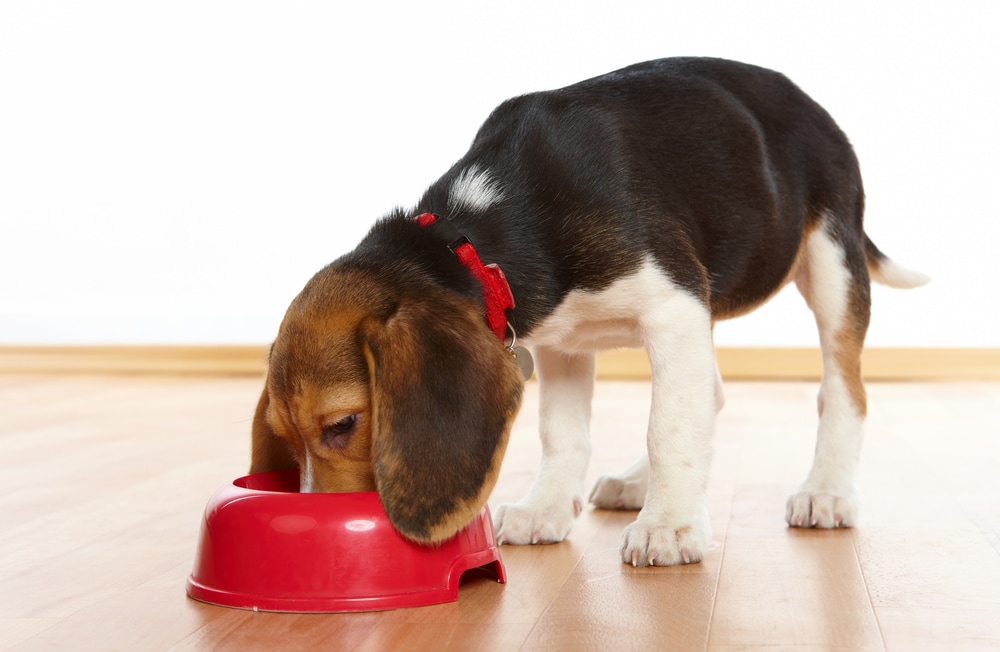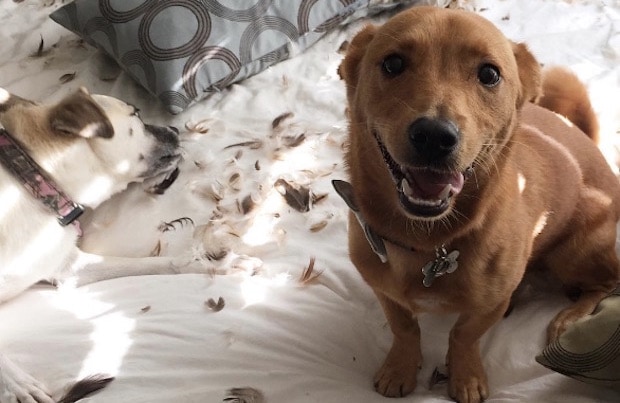Q.
I have a 4-month-old dog. She sometimes vomits after eating. Is she just eating too fast? Is it the food? Or is it something more serious? I took her to the vet two weeks ago, but he didn’t seem to be concerned.
A.
This is a frequently asked question, and an important one. Many dogs become excited about getting fed. They proceed to eat too quickly and promptly regurgitate. It’s important to be able to distinguish between vomiting and regurgitation.
Vomiting in dogs involves dramatic, full-body heaving, accompanied by the horrible retching sound that may wake you up in the middle of the night. Vomited food is partially digested, smells bad and is difficult to clean up. Most dog owners are pretty clear on what vomit looks like.
Regurgitation, on the other hand, usually happens quickly, soon after a dog eats, without a lot of drama. The regurgitated material looks mostly like food, and is sometimes tubular — just like the esophagus. Although eating too fast is often a cause of regurgitation, another more serious medical condition can also cause it.
Megaesophagus occurs when the esophagus loses the normal muscular tone that allows it too squeeze food down into the stomach. Food may simply sit in the esophagus until it is regurgitated. Causes of megaesophagus can include certain diseases of the immune system, such as myasthenia gravis, or hormonal disorders, such as low thyroid levels.
In any event, if your dog continues to retch, take her back to your vet, where he may want to take X-rays to rule out megaesophagus.
Another idea that may help is to offer more frequent, smaller feedings, so your dog is not so hungry and cannot eat as much at one time; or consider a dog slow feeder.
By: Jon Geller, DVM
Featured Image: Via Shutterstock/Monika Wisniewska
Share:









